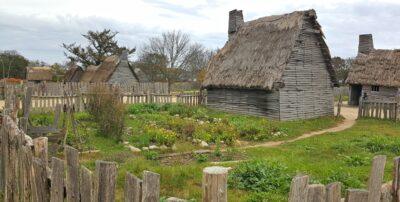
Throughout history, heirloom seeds have been more than tiny packets of potential life; they have been the foundation of survival, innovation, and community resilience. In times of hardship, seeds offered the hope of a harvest and the means to sustain life. This was especially pronounced during the Pilgrim and early colonial experiences in America, where survival often depended on the ability to cultivate food from the earth. Reflecting on past lessons, it’s clear that preserving seed stock is not just a historical necessity but a practical safeguard for the future.
Seeds in History: A Lifeline in Hard Times
The Pilgrims who landed at Plymouth in 1620 faced unimaginable challenges. They arrived in a new world with limited provisions, relying on the seeds they brought and the guidance of Native Americans to grow food in an unfamiliar environment. Squanto, a member of the Patuxet tribe, taught the settlers how to cultivate corn, beans, and squash, saving many from starvation. The colony might not have survived without these seeds and the knowledge to plant them.
The early Colonial period in America was marked by trials of scarcity. Crops failed due to harsh winters, unfamiliar soils, and lack of farming expertise. Communities that maintained robust seed stocks could adapt and replant after failures, while those that didn’t, faced devastating consequences. Seeds became a form of wealth and security… an asset so valuable that they were often shared or traded to build alliances and ensure mutual survival. Many said seeds in times of scarcity, were more valuable than silver and gold.

Struggling to survive: The early Colonial period in America was defined by harsh winters, unfamiliar soils, and crop failures, highlighting the settlers’ reliance on resourcefulness and determination to overcome scarcity.
This reliance on seeds was not unique to the American colonies. Across the world, civilizations understood the importance of saving seeds from harvests to secure future crops. Whether it was rice in Asia, wheat in the Middle East, or maize in the Americas, the ability to produce food consistently defined the rise and fall of societies.
Modern Life and the Risk of Dependence
Fast forward to today, and the world looks vastly different. Our food systems are marvels of efficiency and complexity. Supermarkets brim with fresh produce, packaged goods, and international delicacies, all made possible by global supply chains and “just-in-time” distribution systems. However, this convenience comes with vulnerabilities.
Most grocery stores carry only a few days’ worth of food. If supply chains were disrupted… by natural disasters, economic crises, or geopolitical events—empty shelves would become a stark reality for many. The division of labor that allows us to specialize in jobs far removed from agriculture also means that few people today have the knowledge or resources to grow their own food. In such a scenario, hunger would quickly become a pressing issue, particularly in urban and suburban areas with limited access to arable land.
Seeds as a Solution: A Call for Readiness
The solution to this potential vulnerability lies, in part, in reclaiming the age-old practice of maintaining seed stock. Having seeds on hand, coupled with basic gardening knowledge, can empower individuals and communities to regain a measure of food security. A backyard garden, even a small one, can supplement diets with fresh produce, reduce dependency on external systems, and foster resilience in the face of uncertainty.
But the value of seeds goes beyond practical utility.
Growing food connects us to the cycles of nature, the legacy of our ancestors, and the satisfaction of self-reliance. It reminds us that sustenance comes from the earth, not the store and that we can provide for ourselves and others with care and effort.
Planting Seeds for Tomorrow By Getting Started Today
Imagine a future where unforeseen events leave shelves empty and stomachs hungry. Imagine the peace of mind that comes from knowing you have a store of seeds and the skills to use them. Today’s small investment in seeds and gardening tools could mean the difference between dependence and self-reliance tomorrow.
The time to act is now. Start with a few packets of hardy, versatile heirloom seeds… tomatoes, beans, squash, and leafy greens. Learn the basics of soil preparation, planting, and harvesting. A small effort can yield surprising rewards even if you’re not a seasoned gardener.
Remember, heirloom seeds are not just for farmers or survivalists… they’re for anyone who values security, independence, and the simple joy of growing food. Let’s honor the lessons of the past and prepare for the uncertainties of the future. By keeping seeds on hand, we plant not just a garden but the hope of a more resilient tomorrow.
 Off The Grid News Better Ideas For Off The Grid Living
Off The Grid News Better Ideas For Off The Grid Living



